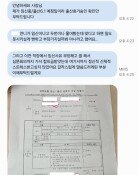[Editorial] Presidential Radio Speech
[Editorial] Presidential Radio Speech
Posted October. 10, 2008 03:16,
The won-dollar rate surged for five consecutive days before dropping 15.5 points yesterday, due mainly to the governments timely injection of foreign currency into banks. With the financial market suffering a dollar shortage along with growing speculative demand, Bank of Korea Governor Lee Seong-tae described the situation as irrationally sensitive. This, however, failed to sound convincing at all to small companies, which face bankruptcy by losses stemming from "knock-in knock-out (KIKO)" options.
The governments vague optimistic view on the countrys financial prospects is partly to blame for the skyrocketing dollar. Despite an inability to predict rapid changes in the financial market, the finance minister, presidential aides and even the president have painted a rosy picture of the market, eventually aggravating the situation. As their predictions have been off the mark, more Koreans are losing trust in the governments response to the crisis.
Just two days after Strategy and Finance Minister Kang Man-soo announced the government would inject as much foreign reserves as needed to stave off the wons plummeting value last Tuesday, the currency began to nosedive against the greenback. He could have saved the market from falling had he focused on checking and providing countermeasures against the vulnerable forex market and the dollar shortage, rather than just reassuring banks and businesses. Though many have urged measures to protect KIKO damage to small and mid-size enterprises since May, the government has dragged its feet and only named a task force this week. As a result, companies and taxpayers will face a higher burden and suffering.
The government is pushing a radio speech by President Lee Myung-bak to say failure in clearly conveying its major policies and vision to the public invites more confusion. This is doubtful to work, however. Last month, key officials were eager to provide their opinions on the feared black September rumors. The ensuing public distrust was not triggered by the presidents silence. In this sense, the radio speech raises questions over the governments intent given that TV has a far wider audience. U.S. President Franklin D. Roosevelt gave radio speeches before TV was available.
President Lee is unlikely to turn around the financial market, especially since his finance minister failed to stabilize the situation with his announcement. If market conditions deteriorate further after Lees speech, can he handle the consequences?
Headline News
- N. Korea launches cyberattacks on S. Korea's defense companies
- Major university hospital professors consider a day off each week
- Italy suffers from fiscal deficits from ‘Super Bonus’ scheme
- Inter Milan secures 20th Serie A title, surpassing AC Milan
- Ruling and opposition prioritize spending amid tax revenue shortfalls







